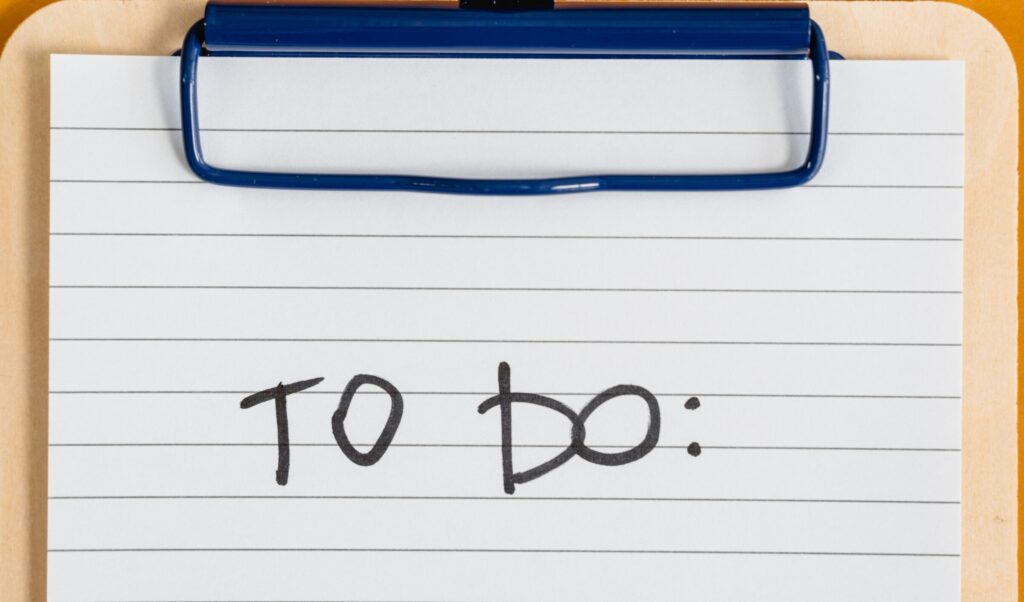People frequently discuss their morning rituals and productivity, but they hardly ever discuss how their nighttime routine influences their productivity. Morning routines have been widely addressed on the internet and hailed as the cure-all for your productivity difficulties. If you’re an early riser like me, you know how great it feels to do certain tasks before midday! Unconquered feeling, yes? I don’t know about you, but in order for me to successfully face my mornings, I need to establish a reliable nighttime routine.
If you are a person who is always interested in discussing winning the morning, then this article is for you. I will give you tips and some advice on how to create an ultimate nighttime routine for a successful morning based on things that have actually worked for me as well as proven scientific facts. Want to conquer your morning? Then let’s start by talking about how not to lose it.
Why nighttime routine for success?
The amount and quality of sleep have a big effect on performance. A sleep-deprived individual cannot focus their attention adequately and so cannot efficiently attain their goals. According to a study done on college students and professors, having a strict schedule (particularly for nighttime) and possessing health-related characteristics like getting more sleep help you feel less worn out during the day.
Have you ever heard of brain fog? Disorientation, forgetfulness, and cognitive clarity define this. Brain fog can be caused by a lack of sleep or by stress. So, here’s why you need a nighttime routine:

1. You are able to get enough sleep to function regularly from morning to night.
2. You are able to create wholesome routines for unwinding after a demanding day.
3. You are able to avoid brain fog, which improves your mental clarity.
Feeling any wiser now, do you? Perfect! moving forward.
I am aware of how challenging developing a routine can be for certain people. If the information presented below seems overwhelming, keep in mind that developing healthy habits takes time and that it is okay to concentrate on one task at a time as you gradually improve your routine. I also recognize that not every day is the same for you; on some days, you might experience extreme stress, get sick, and so forth. If you find yourself unable to completely adhere to your plan, remember that it is okay; don’t feel bad about it.
If possible, try to carry out a few of the activities listed below each night. And the better for you if you manage to get everything done.
Begin your nighttime routine as early as 5 p.m.
I suggest 5 p.m. since that is when most individuals leave their day jobs to go home. During this time,
1. Caffeine should be avoided until the next day.

Caffeine is a stimulant that makes it difficult to sleep. Soft drinks, energy drinks, chocolate, black and green tea, and coffee all include it. It may also be found in energy bars and drinking chocolate (however the caffeine content is quite low, 0 to 5 mg. But, hot chocolate made with cocoa powder typically contains more caffeine). According to the American Academy of Sleep Medicine, it takes 30 minutes to an hour for caffeine to reach its highest amount in your blood. Caffeine has a half-life of three to five hours. The half-life of a substance, in this case, caffeine, is the amount of time it takes for your body to eliminate half of it.
In any case, if you’re particularly thirsty, consider drinking smoothies, fresh juices, or herbal teas without caffeine, like chamomile tea. Are you aware that chamomile tea promotes sleep? I’ve been drinking chamomile tea 45 minutes before bed for about a year now and I love it.
2. Refrain from drinking alcohol.
Stressful day huh? I understand that drinking alcohol makes you happy and spirited. Sad news, though, if your intention is to have a productive morning. To prevent sleep disruption, you might need to put away the alcohol for at least four hours before bed.
3. Exercise or go for a walk.
I am a light sleeper. During the nighttime, any noise will wake me up. I also have difficulty falling asleep quickly at times. Evening walks have definitely helped me fall asleep quickly because they partially fatigue me. When I’m tired, I tend to fall asleep quickly and sleep deeply during the night.
If this is the case for you, engaging in some physical activity may somewhat exhaust you, allowing you to sleep better at night.
4. Do an enjoyable activity to decompress from your day.
And please, no alcohol unless you have more than 5 hours until bedtime! I’m referring to activities such as watching an episode on Netflix, playing with your pet, painting, or, if you’re a musician, playing your favorite instrument.
5. Consume your dinner early.
Depending on your schedule, early can be relative. Personally, I try to sleep between 9:30 and 10:00 p.m. That means I need to eat around 6 p.m., which, to be honest, isn’t always the case. Regardless, I make an effort to eat dinner before 7:30 p.m. A study was conducted among university students, and the conclusion was that meal timing may increase the likelihood of nighttime awakenings and poor sleep. As a result, it is recommended that you eat at least 2 hours before going to bed.
If you are concerned that eating early might cause you to become hungry throughout the night, feel free to indulge in a light, healthy snack like Greek yogurt or a bowl of fruits as they are both quickly digested.
6. Make tomorrow’s plans.

Preparing in advance helps you not rush through your mornings and makes you attentive to what you do, whether you work from home or must leave the house to get to work.
Making preparations for the following day can involve choosing and ironing your clothes, putting your belongings in the bag you’ll use to go to work the following morning, etc.
one hour before retiring to bed.
1. Connect with your loved one(s).
Taking some time to reconnect with your loved one may make you happy whether you leave alone or with your family. Deep talks, whether on the phone or in person, can promote connection and may be exactly what you need to feel centered.
2. Bid your screens goodnight.
Your eyes have difficulty filtering out blue light. Blue light interferes with your body’s ability to get ready for sleep more than any other hue because it suppresses melatonin, a sleep hormone that makes you sleepy.
If you must use a screen before bedtime, make sure to modify the settings on your device(s) to filter out blue light. You could as well invest in a pair of blue light glasses.

3. Assess your day.
This is the ideal time to think back on your day because you are not glued to your screen. Analyze what you were able to do and what you were unable to accomplish. Consider what you would have done better to attain your objectives. You can jot down items for which you are grateful while reflecting. This makes you feel grateful and upbeat as you end the day. Okay, now that you’ve had time to reflect on your day, let’s move on to the next.
4. Make tomorrow a little simpler.
Tick off tasks you achieved to hit and those that weren’t attained could be the next day’s priority. Making a to-do list the day prior provides you with a sense of order for the following morning.
5. Read a book
Every individual has targets on how many pages they should read a day. Note that every person is unique and portrays different reading skills. My ability to read, comprehend, interpret, and decode text might differ from yours. If you desire to cultivate a reading culture, start off by reading 5-10 pages per day. Reading increases personal development, innovative thinking, and stress reduction. Just keep in mind the information we have covered about how to deal with blue light if you are reading a digital book.
A few minutes before jumping in bed.
1. Stretch/meditation/breathwork.
This study on meditative movement—a mild activity that incorporates some sort of body alignment, breathing, and relaxation—shows that adding light stretching exercises like qi gong and yoga can enhance the quality of sleep.
Research carried out on postmenopausal and sedentary women shows that stretching is associated with sleep improvement. This is one of my favorite breathwork instructors on the internet.
2. Practice your self-care routine.

Warm showers or baths before going to bed are recommended by this study to help with sleep enhancement. I don’t know about you, but I find the bathroom to be a really safe place. I can sing out loud without worrying about hitting the correct notes, cry out loud, or perform an entire skit.
This is the ideal place to unwind after a long day. Pamper yourself after getting out of the shower. This is an excellent time to put your skincare routine into action. Pamper yourself, whether you have 10 skincare products or simply 1. Use your self-care routine to tune in with your body.
Please don’t forget to brush your teeth as well! Cheers to a glowing smile!
3. Talk to your creator.
The best thing you can do for yourself is to end your day with a conversation with God. If you’re not sure what to say, let me help: tell Him how your day has been, what you’ve struggled with, all your anxiety, and what you’re grateful for. Also, ask Him to give you a good night’s sleep and to bless your next day.
Sometimes we get so caught up that we forget to talk to God during the day. It’s an excellent way to deepen your relationship with Him by simply spending five minutes with Him before you go to sleep.
Tip for better sleep throughout the nighttime for a successful morning.
This is for folks who live in a noisy area or who frequently awaken at night from noise or light coming from the outside. A white noise machine or a pair of sound-canceling sleeping buds are good investments. These sleeping earbuds were a purchase I made, and they enable me to sleep all night long till morning. Initially, they could feel a little uncomfortable, but you’ll get used to them. Investing in blackout drapes also aids in filtering any artificial light coming from streetlights or other sources.
How to stick to your nighttime routine.
· Be realistic.
Pick the things you actually enjoy doing the most when deciding what to include in your evening routine. For instance, if you don’t like chamomile tea before bed, you may try lavender or peppermint tea instead, which doesn’t contain any caffeine. If you don’t like to walk, you might ride a bike or perform calisthenics exercises.
You don’t have to follow my nighttime routine or that of your favorite celebrity; just pick an aspect of it that speaks to you, especially from the guide, and make it work for you.
· Consistency.
As I previously mentioned, developing healthy habits may take some time for some people, but consistency is key. The same things will stick if you repeat them every day. They merge into who you are. If you struggle to follow your evening guide, pick two habits you’d like to develop, constantly work on them until they become a part of you, and then progressively work on the remaining habits day by day.
· Use devices to help you.
I have made good use of my fitness band alarm clock. I’ve set timers to alert me when to put away my devices, pick up a book, and go to bed. We may occasionally become so preoccupied with one task that we neglect to complete other crucial tasks. It’s acceptable to create reminders since sometimes our minds will falter.
Final Reflections.
For some people, developing a healthy routine can take some time. Don’t be too hard on yourself when you don’t achieve much because remember that it is a gradual process. If you persist and are consistent, developing a nighttime routine will pay off for you.
Hey! I have faith in you! You are able to achieve this. And I fervently believe God’s grace will help you accomplish all your goals! Nail it!


